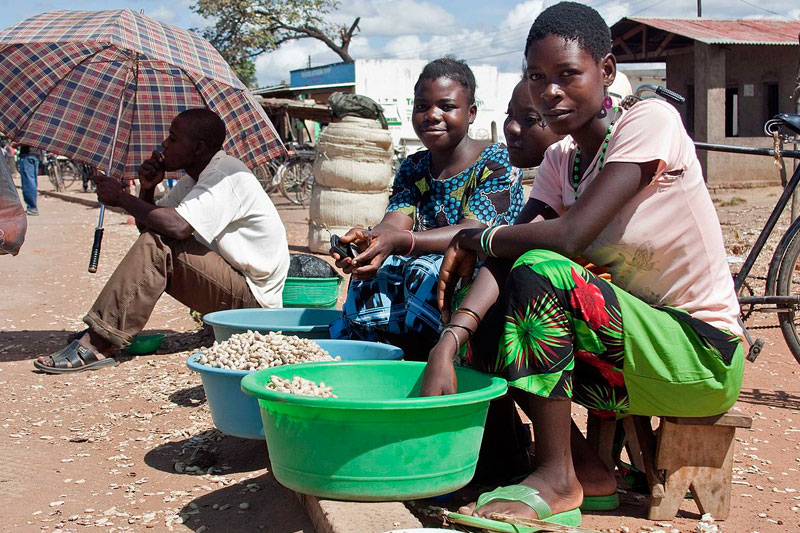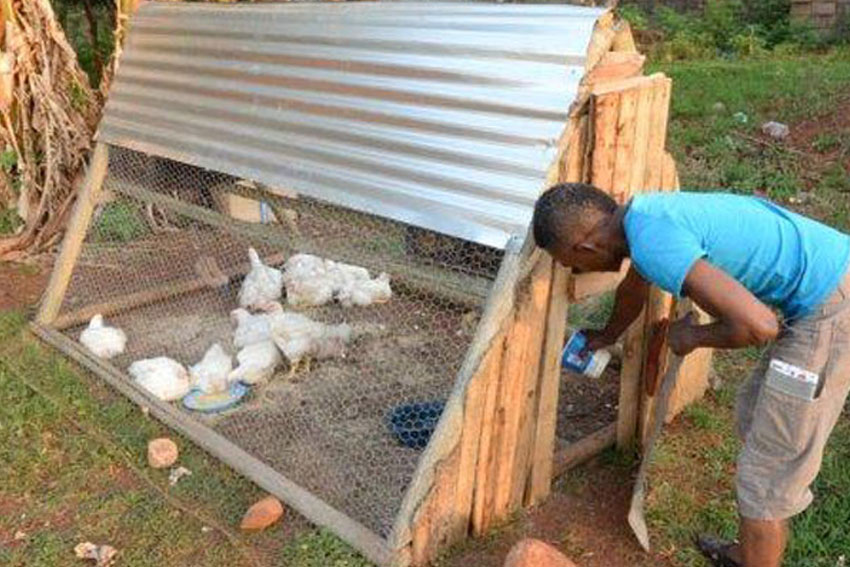A few weeks ago, I gave a talk to some twenty young entrepreneurs who were shortlisted for the What Will You Do With K20 Million Challenge. My talk was about digital skills, online communication and the importance of storytelling as a business owner. Other presentations were made on a range of topics including taxation, business models and seeking investment.
After my session, I was thinking about how only one of the young entrepreneurs I had earlier interacted with would get the K20 million prize. The rest would have gained valuable business knowledge and have been helped to develop a better business plan, but would, more likely than not, never get financing to fund their wonderful ideas.

Limited sources of Malawi startup finance
A good majority of indigenous Malawians start their businesses with little or no financing. A lucky few will get financial help from family or friends. Some people will actually discourage relatives from venturing into business if they have no capital to begin with. “Tangopezani ntchito apa! Mukuyambiranjii bizinesi ngati mulibe kapitolo?” (Just find a job! Where are you even considering starting out if you have no capital?). This work /self-employment issue was the topic of my previous post.
There are a few international funds that will support Malawian entrepreneurs with startup finance. I came across a few like the Africa Enterprise Challenge Fund which awards grants ranging from £100,001 to £1,000,000 (MwK93m to MwK930m) to private sector companies to support new and innovative business models in Africa including Malawi. Another is the Africa Agriculture Development Company (AgDevCo) which invests debt and equity of over £1,000,000 (MwK930m) in African agribusinesses to create jobs, improve food security and boost prosperity. Pretty big figures for your average startup!
Websites like Venture Capital 4 Africa (VC4A) provide a platform for African startups to connect to opportunities. Entrepreneurs can promote their venture, access free online tools and raise capital. But most opportunities are only available to entrepreneurs in countries like Kenya and Nigeria. Very few opportunities are open to Malawians.
Close to home, programmes like the African Development Bank (AfDB) funded Business Linkages Matching Fund managed by the Ministry of Industry and Trade to provide loans of up to $20,000 (MwK14m) to small and medium enterprises. The last beneficiaries used the loans to purchase milling machines, tractors, cold rooms for storage of poultry products and mushroom seed among others. As of a few months ago when I contacted the fund, they were not lending out any money as they were drawing close to the end of the programme. I could be wrong but I feel that most times you need to know someone to know about programmes like these, probably even to benefit from them.
Another SME Fund, Business Partners, provides financial solutions, support and mentoring to formal small and medium enterprises (SMEs). They loan out amounts from $50,000 (MwK36m) for various business ideas from tech to manufacturing. Not sure about the terms but sounds like a good option for a startup needed an injection of cash.
The Southern African SME Risk Finance Fund: This regional fund was established to provide support for SMEs in Namibia, Malawi, Zimbabwe…
— Business Partners (@BizPartnersLtd) July 8, 2013
Accesserator is a fund set up by two Dutch professionals who see opportunities for doing business with Africa and especially Malawi. Using pension funds from their country, they are using their knowledge and skills to invest in local agribusinesses like pig farming and poultry keeping.
Common sense tells new entrepreneurs not to approach banks. In an economy where interest rates are high, it’s self-inflicted misery to even consider applying for a bank loan. There is however a facility between FMB and USAID to guarantee loans to individuals and enterprises in agriculture, microfinance, education and health. But going by the name, this could simply be to ease the requirement of collateral. So don’t take my word for it, I am no expert in this area!
Playing small
So bootstrapping is commonly the default method of startup finance in Malawi for traders and other business people. With this type of financing, indigenous Malawian entrepreneurs will always play at the bottom end of the spectrum. They will remain small with struggling cash flows. They will only watch as international investors come in and enjoy government incentives.
Missing Beginning
Very few local organisations have shown willingness to come up with initiatives that will support startups with skills let alone financing. To the best of my knowledge, I can count Total Malawi Startupper Challenge, Unicef and TNM as organisations that have helped in this area through challenges or providing startup support and training. I understand UNDP is rolling out a programme for SMEs in the near future. Some agribusinesses provide farmers with raw materials and training to produce raw materials for their organisations but they are virtually locked into a contract to supply their products back to this organisation only. Good but it could be better.
Now there may be others out there that I have never heard of before providing support, financial or otherwise. Great job to all you unknowns I have wrongly lumped into the bad apples basket! But where are the banks and players in the financial services arena? The big agribusiness and manufacturing companies? Heck, where are those large family-run enterprises?
How to fix the Malawi startup finance problem
We can’t step aside and watch international agencies come in to help and finance the small players. Most times, as foreigners, they don’t fully comprehend the local business environment. Their understanding of the business environment is academic. As such their products may not really be the best fit for small businesses just starting out or even for young startups.
Time for homegrown companies to step up and fill the missing beginning! Because Malawi needs enterprises built by indigenous Malawians. Malawian-owned mining companies and manufacturing industries. Enterprises, companies and industries supported and financed by indigenous Malawians and indigenous Malawian companies. And bootstrapping will more than likely fail at this quest.
To receive a monthly roundup of stories from the #LifeUnbound blog and other gems subscribe below.


